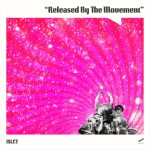We live in a state of illusions, surrounded by them. Reality can be tiresome, and unprofitable, so not only people but also industry have invented a need for illusions. It may be in a time-honoured tradition of at best obfuscation and at worst blatant lying, but I would also ask if illusions are so bad.
Illusions are a fantasy, a constructed, implied reality of the imagination, placed just out of reach in a consistently tantalising, intriguing place. Despite alternative media’s insistence on ‘the truth’ behind events, the masses still flock to Fox, CNN and the BBC, due to some kind of trusted wall of hyperreality they have constructed – giving enough information to have a rough idea of what’s going on, without having one’s ‘productive’ psychology or finely-balanced moral position too much interfered with.
Some of the best known artists and performers greatest moments have been happily immersed in illusion-making, from Carravaggio, Salvador Dali and Bridget Riley, to David Bowie, Björk and the entire tradition of pantomime. The casual watchers of the film industry have supported an entire multi-billion dollar industry for a whole century, an artform near-totally and proudly based on the construct of illusion-maintenance.
The Nazi party in the middle of that decade constructed a fantastical ideology of visual and psychological power-mongering in a way that few states are able to get away with now. The fundament of their ethos was manipulatiıng the illusion of a pure white-blooded race as totem of aspiration, thence embedding the idea in economics. Now, the illusion that there are threats of all kinds all over the media-globalised world hegemonises the audience into a state of tense petrification, despite statistical realities – keep them scared, keep them working, keep them spending.
However, the beauty of the experience of tangible reality is experiencable only by yourself and those around you at the time of the experience. Further from the artists mentioned above, illusion-appreciation, conscious or otherwise, can be an enriching, rewarding, emancipating, even educational process. Everyone with a functioning heart has at some point in their life been positively moved by a Disney production – and then equally negatively affected when they realised the extreme right-wing history of Walt Disney and the companies’ modern day corporate business practices.
Whilst I may baulk at some of the more crass performances at last years London Olympics as demonstrations of ‘British culture’, the whole simulacrum was indeed pulled off with remarkable conviction and positively imperialistic aplomb. That that tense, austerified, fearful, racially-divided country can advertise itself to such extravagant degree speaks volumes for the necessity of mass-illusion making, referenced also in the international view of Britain as a tolerant, multi-racial land of oppurtunity and calm. A public relations coup, and what is PR if not an enormous embedding exercise in simulation persuasion.
The ‘whstleblowers’ cult of Julian Assange, Bradley Manning, Edward Snowden et al remains just that, a cult, because people are happier with the illusion than the reality. The illusion that small far-off conflicts need to be fought, hopefully in a state or permanent stalemate, keeps the audience nervously producing – and insiders and leakers of information thus need to be seen as crackpot idealists or attention-seekers (which may or may not be true) and the mainstream then need to inculcate the prepetrators into the illusion as quickly and painlessly as possible.
On the part of glossy, packaged, day-glo pop culture, the relentlessness of lifestyle and celebrity magazines, the paradoxically-named ‘reality shows’, chat shows, TV advertising, holiday brochures, even Derren Brown, Paul Daniels and Twitter brutally maintain the illusion that the audience have some kind or personal contact with the ‘stars’ being sold and talked about; the product which we are talking about them because of having been long forgotten (if it were ever there). This kind of tabloid culture is one of the most obvious postmodern facades, but more damaging in that the absence of content or depth is now seen as standard for illusion-making.
The ideas of Jean Baudrillard, Michel Foucault, Roland Barthes, Jaques Lacan, Theodor Adorno, Naomi Klein may have been foghorned by the likes of John Lydon and John Robb in regards to the truth-to-materials ethos of punk, but the reality is that this kind of abrasiveness can be difficult to stomach unless you are already of the side of the avant-garde, or in the belly of that beast. Even if they are actually not, I’d say that people at least feel too busy for the brittle truth…and in any case a visit to the theatre, the opera or local pantomime can hold a great deal more culturally nourishing, if sedative, relief than a Crass concert.





